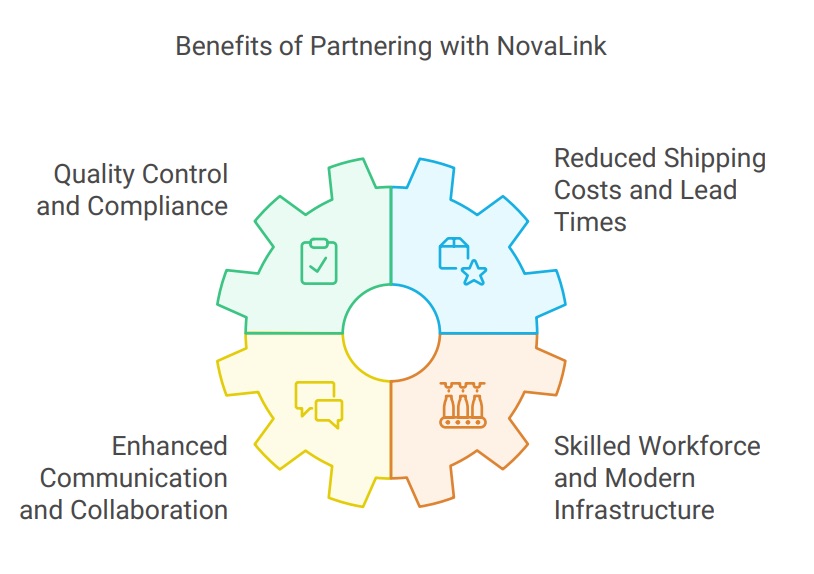Last Updated on November 12, 2024
As a manufacturer, increasing customer trust in manufacturing is crucial to staying ahead of the competition. But how can you achieve this? Simply put, consumers today seek products made close to home, with care and attention to detail.
The Allure of Local
Consumers favor locally made products due to perceived higher quality, safety, and reliability. They associate local products with better materials, craftsmanship, and quality control measures, ensuring attention to detail and adherence to standards. Additionally, locally made products are safer due to stricter regulatory compliance, better quality control, and reduced contamination risk during transportation. Consumers also trust local products to be more reliable due to familiarity with local brands, easier access to customer support, and reduced likelihood of counterfeit products.
Furthermore, consumers prefer locally made products as a way to support the local economy, boost job creation, and preserve traditional industries. They also see local products as more environmentally friendly due to reduced transportation carbon footprint, support for local sustainable practices, and promotion of eco-friendly manufacturing processes. Unique products with handcrafted or artisanal elements, personal connection to the manufacturer or community, and storytelling behind the product also contribute to the appeal of locally made products. When products are made locally, consumers can see the faces behind the brand, building a connection that fosters trust.
The COVID-19 pandemic has left a number of global consumers feeling anxious about the future to come. In a time of uncertainty, ethnocentric attitudes can be common amongst societies. People are becoming more favorable to locally grown products and less trusting of products with extended supply chains. - FMCG Gurus
Offshore Manufacturing and Consumer Trust
Offshore manufacturing in countries like China or India often comes under scrutiny due to complex and interrelated concerns. Firstly, labor practices in these regions can sometimes be less stringent than in the companies' home countries. This can lead to inadequate working conditions, low wages, or even child labor. These labor concerns can result in negative publicity and damage the reputation of businesses that rely on offshore partners.
Since 2016, the government of the People's Republic of China (PRC) has subjected Uyghurs and members of other predominantly Muslim ethnic minority groups in the Xinjiang Uyghur Autonomous Region (XUAR) to genocide, state-imposed forced labor, and crimes against humanity. - Department of Labor
Environmental Impact
Environmental impact is another significant issue. In many offshore manufacturing hubs, environmental regulations may not be as strict, or enforcement may be less consistent than in developed nations. This can result in practices that harm the environment, such as high emissions, poor waste management, or the overuse of natural resources. These practices contribute to a company's carbon footprint and can provoke backlash from environmentally conscious consumers.
Product Quality
Product quality is also a concern in offshore manufacturing. While some manufacturers maintain high standards, others may cut corners to reduce costs, leading to variations in materials or assembly quality. This inconsistency can result in defective products, recalls, or safety issues, further eroding consumer trust.
Nearshore Manufacturing: The Sweet Spot
This is where nearshore manufacturing comes in – a sweet spot that balances cost-effectiveness with proximity to your target market. Partnering with a nearshore manufacturer like NovaLink in Mexico offers numerous benefits. You can:
- Ensure strict quality control and compliance with regulations
- Reduce shipping costs and lead times
- Enhance communication and collaboration
- Leverage Mexico's skilled workforce and modern infrastructure

Conclusion
In conclusion, increasing customer trust in manufacturing requires a thoughtful approach. By embracing local manufacturing, you can tap into consumers' desires for quality, safety, and community support. Nearshore manufacturing with a partner like NovaLink in Mexico offers the perfect balance of cost-effectiveness and proximity, helping you build bridges of trust with your customers.
Frequently Asked Questions
1. What are the benefits of nearshore manufacturing?
Nearshore manufacturing offers reduced shipping costs and lead times, enhanced communication, and access to a skilled workforce.
2. Why do consumers prefer locally made products?
Consumers perceive locally made products as higher quality, safer, and more reliable, while also supporting the local economy.
3. What are the risks associated with offshore manufacturing?
Offshore manufacturing raises concerns about labor practices, environmental impact, and product quality, creating distance and detachment from consumers.
4. How can manufacturers demonstrate transparency and accountability?
Manufacturers can demonstrate transparency by showcasing the manufacturing process, meeting the people involved, and prioritizing quality and safety.
5. Why is Mexico an attractive location for nearshore manufacturing?
Mexico offers a skilled workforce, modern infrastructure, and proximity to the US market, making it an ideal location for nearshore manufacturing.
Explore More: Discover Related Blog Posts
Expand your knowledge and delve deeper into more information about Nearshoring Manufacturing to Mexico with our curated collection of related blog posts.
- Mexico’s Customs Clearance: Why It’s Faster—and Smarter—for Manufacturers
- Setup Process for Manufacturing in Mexico: What You Should Know About Timelines, Permits, and Common Pitfalls
- Cost of Manufacturing in Mexico: What You Need to Know to Budget Right
- Smart Moves: Strategies for Manufacturing in Mexico That Actually Work
- Why “Plan Mexico” Might Be the Wake-Up Call Manufacturers Didn’t Know They Needed
About NovaLink
As a manufacturer in Mexico, NovaLink employs a unique approach that transcends the traditional model of shelter production. More than just the location of your manufacturing, we would like to become a partner in your manufacturing in Mexico. You will be able to relocate or initiate manufacturing for your company in Mexico in a low-cost labor environment with very little delay or up-front costs. Find out how we can help you by handling the manufacturing process.
There are NovaLink facilities in the border cities of Brownsville, Texas, Matamoros, Mexico, and Saltillo, Mexico.